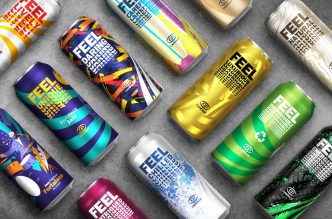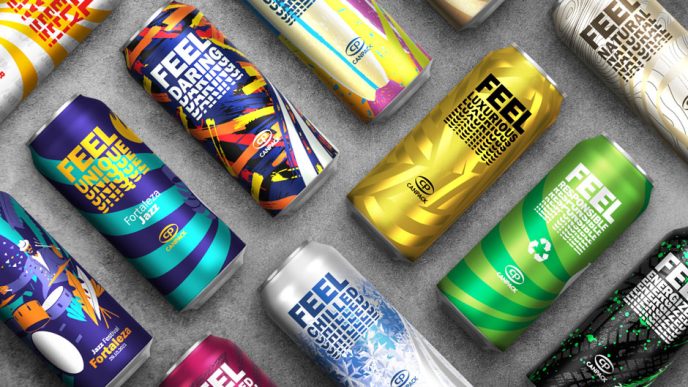Why do some companies stay on your mind, even when you’re not buying anything? Why do you find yourself trusting certain brands without second-guessing the price tag or double-checking the label? It’s not always about clever ads or trendy logos. The real difference often comes down to trust—and that doesn’t happen by accident.
Today’s business world moves quickly. But speed alone doesn’t win loyalty. Consumers are looking deeper. They want values, consistency, and a sense that the brands they support actually stand for something. That shift isn’t just a trend—it’s a new baseline for modern companies.
In this blog, we will share how brands are earning long-term loyalty, why storytelling and substance go further than slogans, and how trust is becoming the most powerful currency in business.
Beyond the Buzzwords: What People Really Look For
It’s no longer enough to say a product is “eco-friendly” or “clean.” Those terms have been thrown around so casually, they’ve lost meaning. Instead, people are asking: How is it made? Who makes it? And does the company stick to its values when no one’s watching?
That’s where companies with clear missions stand out. Take Melaleuca: The Wellness Company, for example. Founded in 1985 by Frank VanderSloot in Idaho Falls, this company didn’t wait for “green” to become popular. From the beginning, it focused on safer ingredients, household essentials, and long-term health—back when that wasn’t the norm.
That foundation has paid off. If you look at Melaleuca reviews, you’ll find a pattern: customers appreciate not just the products, but the company’s consistency and commitment to its mission. When people feel like a company actually believes in what it’s selling, they’re far more likely to stick around.
Story First, Slogan Later
You can spot a shallow marketing strategy from a mile away. Slick packaging with no backstory. A bold claim with no follow-up. It might catch attention—but it rarely earns loyalty.
Consumers today are savvier. They want to know why a brand exists, not just what it sells. That’s why storytelling matters. Not the overly polished kind, but the kind that’s grounded in real decisions, real challenges, and real people.
A business that shares its origins, admits when it got things wrong, and shows how it’s evolving builds more than awareness—it builds trust. And trust isn’t just a feel-good idea. It turns customers into advocates.
Purpose Is No Longer Optional
A few years ago, having a charitable angle or a cause-related marketing campaign was a nice touch. Now, it’s expected. People want to support businesses that go beyond profit. That means reducing waste, supporting workers, and staying involved in the communities they serve.
This is especially true for younger buyers. Gen Z and Millennials are quick to research a company’s practices before making a purchase. If a brand says it cares about wellness but cuts corners in manufacturing or sourcing, that disconnect shows—and it hurts.
What works? Doing the right thing all the time, not just when it’s trending. Brands that bake purpose into their operations from the ground up tend to outperform those that treat it as an afterthought.
Fast Isn’t Always Flexible
Recent years have tested every company’s ability to adapt. Supply chain issues, remote work, new customer demands—it’s been a pressure cooker. But interestingly, the brands that stood out weren’t the ones that moved the fastest. They were the ones that moved with clarity.
Adaptability doesn’t mean flipping strategies every time TikTok trends change. It means knowing your core and adjusting the delivery. It’s the meal service that adjusted recipes for new dietary needs. The skincare brand that pivoted to simpler routines when people stopped wearing makeup. The wellness company that made ingredient transparency part of its normal operations.
Consistency doesn’t mean rigidity. It means being anchored in purpose while remaining open to new ways of reaching people.
Where Reputation Actually Comes From
Let’s talk about reputation—not the glossy version, but the kind built from actual customer experience. A viral campaign might spike sales, but it won’t build staying power. What does? Solving problems. Answering questions. Making it easy to return something or get help.
That’s why reviews matter more than ever. Not because they look good on your website, but because they reflect lived experience. And in an age of screenshots and instant sharing, one unresolved complaint can travel far.
Here’s the twist: you don’t have to be perfect. You just have to be reachable, responsive, and real. That’s how trust is built. And once you have it, people don’t just buy—they recommend.
People Over Products, Every Time
Of course, products still matter. But if you look closely at what’s working in today’s business world, you’ll notice something. The companies with the strongest customer bases focus less on the transaction and more on the relationship.
They create products that solve actual problems, not just fill shelves. They invest in people—from their team to their customers—and it shows. This people-first approach is what separates modern, values-driven businesses from those still stuck in the old model.
You can see it in how companies talk about their mission, how they train their staff, and how they respond to moments of crisis. Businesses that prioritize people build stronger loyalty. It’s that simple.
What Intentional Growth Looks Like
Being thoughtful isn’t soft. It’s strategic.
The companies gaining momentum right now aren’t always the loudest. They’re the most consistent. They know who they are. They’re honest about what they offer. And they put care into how they operate—across everything from sourcing to shipping to customer service.
This kind of intentional growth builds real staying power. It also makes it easier to recover from missteps. When a business has built trust, customers are more forgiving. When that trust is missing, even small problems feel bigger.
So yes, growth matters. But how you grow matters more.
The Quiet Edge That Lasts
In a world full of digital noise, big claims, and endless competition, some companies manage to keep their edge without making a scene. How? They make people feel seen. They solve real problems. And they do it without trying to be something they’re not.
Those are the businesses that people return to. That’s the difference between short-term hype and long-term value.
And in the end, that’s what modern consumers are really buying: confidence. Not just in a product, but in the people behind it.














